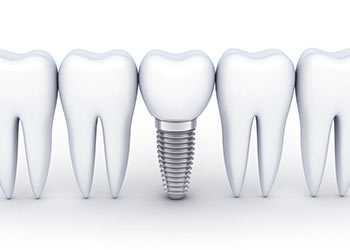Relative to other dental prostheses, dental implants present with very few problems as none of the functional problems associated with dentures, bridges and traditional crowns are likely to occur.
Despite the fact that only around 2% of implants fail there are some short and long term complications that could occur.
Short Term Problems With Dental Implants
Short term problems are those that occur during or just after surgery or in the months following the surgery. The most common short term problems include:
Infections
The dental implant procedure is surgical and takes place in the mouth, which is full of bacteria. Even though the chances of infection are present it is highly unlikely to develop if you follow your dentist’s instructions for good dental hygiene very closely.
Poor or slow healing
If you have an existing medical condition, which interferes with or slows down your body’s ability to heal itself, such as diabetes, alcoholism, cancer or if you have had radiation to your jaw, you may find healing very slow. Smokers are also slower to heal than non-smokers.

Movement of the implant
It is very important that your dental implants do not move around, otherwise fusion with the bone cannot happen. Your implant will take at least 16 to 17 weeks to heal fully so if it does move around, then the bone will not grow and you could end up with a soft tissue growth instead.
Insufficient bone
Successful dental implants are surrounded by bone on all sides but if you have lost teeth some time ago it is highly likely that you have experienced bone loss as well. In this case you will be a candidate for a bone graft but your implant dentist should be highly skilled and experienced to give you the level of care required for a successful surgery.
Loose dental implants
Implants loosen when they cannot fuse to the jawbone properly. If your surrounding soft tissue is damaged then it is possible for your implants to loosen. This problem can usually be resolved.
Damage to tissues or nerves
Although rare, it is possible for nerves or soft tissues to be injured during the surgery. This can cause pain, numbness or tingling in the lips, gums and teeth.
Long Term Complications With Dental Implants
Once you have had your surgery and started the healing process there is a risk of longer term complications developing.
Poor dental hygiene
It’s important to remember that if your natural teeth were lost due to poor dental hygiene you need to improve your habits to maintain your implants. Your dental implants are considerable investment and should be protected with daily brushing, flossing and regular visits to your friendly dentist.
Putting too much force on your implant
Even though the dental will be placed solidly in the jawbone it is not indestructible. You must not put too much force or weight on it, because it is embedded in the bone. Too much force can cause further bone loss, which can create a pocket that stores bacteria.
If you have been offered mini implants as a treatment solution, this is important to consider because implants that are smaller cannot take as much weight or force. It is vital that the size of the implants be taken into account at the planning stage.
Incomplete planning
A sound treatment plan is essential for success. It has happened that patients undergo successful surgeries and heal perfectly only to discover later on that the implants are not suitable, either because of the angle or location of the placement, or because of aesthetic considerations.
These types of problems can be avoided with proper planning. It is recommended that you start your treatment with the dentist who is making your teeth so you know what and where they will be placed before consulting a surgeon.
Any potential issues with dental implants can be circumnavigated by following your dentist’s instructions. dental implants allow people who have lost teeth to have a permanent and custom solution that is comfortable and long lasting.
Still have questions about the dental implant procedure? Contact Southern Smiles for expert advice today.
(02) 8503 9902.






I found out one of my teeth is in bad shape and my dentist is recommending a dental implant. I am kind of a baby on this stuff and just thinking about it is making me scared so it’s a very good point to get more information about some pre-op or post op instructions. This article has been really helpful. I think I feel less worried now that I know how it is after the treatment. Knowing is just so powerful. I just hope I could make it work for me rather than against me.
It’s been days since my dental implant surgery and I’m worried something is wrong with it.
My jaw is bruised and swollen and I’m bleeding so I’m worried it went wonky and wondered if there is a way to know. As my dentist is a few hours away, I tried the internet for answers and found this blog. It appears that getting some pain like I’m having is normal , so that’s really good to know but I wasn’t told that upfront. Anyway I would still see my dentist soon and have them evaluate to make sure all is ok. Great post by the way.
I’m really kinda frightened. I got an implant one week ago and I noticed one side has a bump. I have no pain at all. It’s just worrying me and I can’t just pop in to get it checked out as my dentist is a few hours away. Thankfully reading this post put my mind a little bit at ease. Although bumps were never mentioned as a complication it still hasn’t eliminated my
concerns entirely so it might be best for me to send a pic to my surgeon to confirm and go see him.